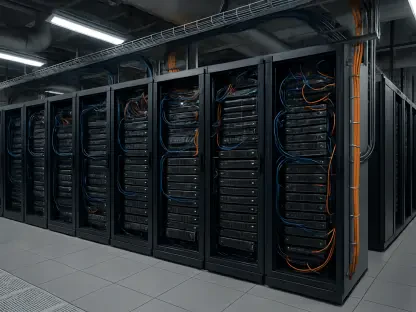In the fast-evolving landscape of cybersecurity, staying ahead of vulnerabilities is paramount. Matilda Bailey, a renowned networking specialist, sheds light on the latest Cisco security advisories, focusing on high-severity vulnerabilities in their Identity Services Engine (ISE) and Unified Intelligence Center, along with medium-severity vulnerabilities impacting other products.
Can you provide an overview of the recent security advisories published by Cisco?
Cisco has recently issued several security advisories addressing more than a dozen vulnerabilities within their product range. Among these, the advisories have highlighted two high-severity flaws in their Identity Services Engine and Unified Intelligence Center. These advisories aim to mitigate potential risks and ensure that customers are protected from exploitation.
What are the high-severity vulnerabilities that were addressed by Cisco?
The advisories focus on high-severity vulnerabilities in two core products. The Identity Services Engine has a vulnerability impacting its RADIUS message processing, while the Unified Intelligence Center has a flaw that could lead to privilege escalation. Both vulnerabilities pose serious risks, such as denial-of-service in the case of ISE and administrative privilege escalation in Unified Intelligence Center.
Could you explain the vulnerability identified as CVE-2025-20152?
Absolutely. CVE-2025-20152 impacts Cisco’s Identity Services Engine, specifically the RADIUS message processing feature. The vulnerability occurs due to improper handling of certain RADIUS requests. An attacker could exploit this by sending a specific authentication request to a network access device that utilizes Cisco ISE, causing it to reload and enter a denial-of-service state.
What is the significance of the vulnerability tracked as CVE-2025-20113 in Unified Intelligence Center?
This vulnerability is significant as it could allow an authenticated attacker to elevate their privileges to an administrative level, albeit limited to certain functions. This escalation is due to insufficient server-side validation of user-supplied parameters in API or HTTP requests, allowing the exploit via crafted requests.
Can you describe the medium-severity vulnerability referred to as CVE-2025-20114?
The CVE-2025-20114 vulnerability involves insufficient validation of user-supplied parameters in API requests, which can lead to a horizontal privilege escalation. This is essentially different in that it allows lateral movement across similarly privileged accounts rather than vertical escalation to higher privilege levels, executed via insecure direct object reference attacks.
What other products, besides ISE and Unified Intelligence Center, were affected by medium-severity bugs?
Medium-severity bugs were identified in several products, including Webex, Webex Meetings, Secure Network Analytics Manager, and Unified Contact Center Enterprise. These vulnerabilities varied from cross-site scripting attacks to arbitrary command execution, posing their own risks to data and system integrity.
What kind of risks do the resolved medium-severity vulnerabilities pose to Cisco products?
Despite being medium-severity, they still present considerable risks, such as information disclosure, unauthorized access, data manipulation, and service disruption. Timely patches help mitigate the potential for these scenarios, preserving business operations and data security.
Are there any known instances where these vulnerabilities have been exploited in the wild?
Cisco has confirmed that, to their knowledge, none of these vulnerabilities have been exploited in the wild, which underscores the proactive nature of their advisories and response.
How can users access additional information about these vulnerabilities?
Cisco’s security advisories page is the go-to resource for detailed information on these vulnerabilities, including their impacts and the recommended steps for mitigation.
Can you provide more context on other vulnerabilities that have been recently patched by Cisco, such as those in Meraki and ECE products?
Yes, Cisco has been active in addressing vulnerabilities across their broader product suite, including those affecting Meraki and ECE products. These patches are crucial as they tackle potential denial-of-service attacks, safeguarding network stability and user data.
Do you have any advice for our readers?
Stay vigilant and proactive. Regularly update and patch your systems to keep up with the latest security advisories. Security is a moving target, and staying informed and responsive is key to protecting your assets and data.









